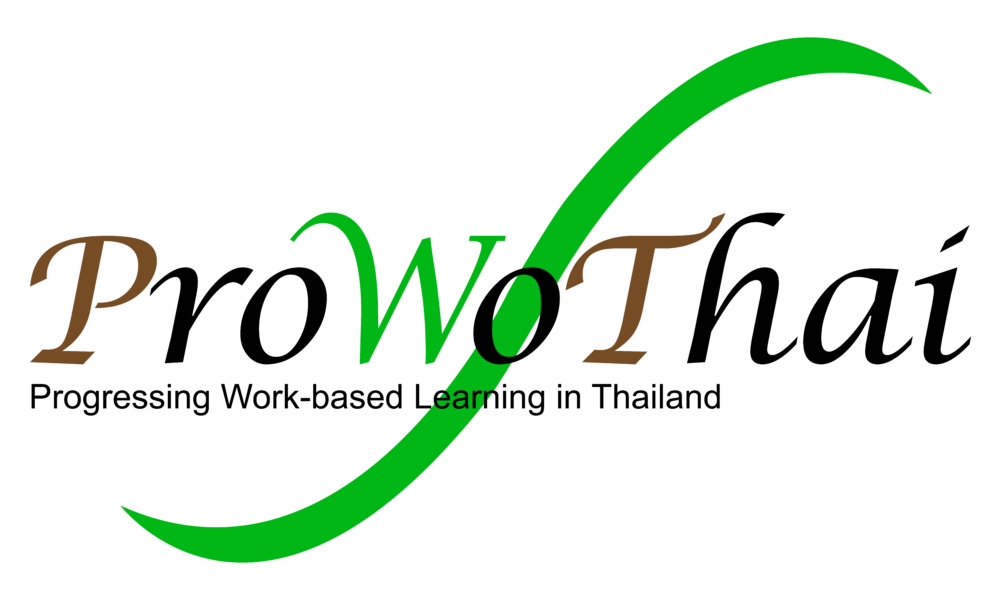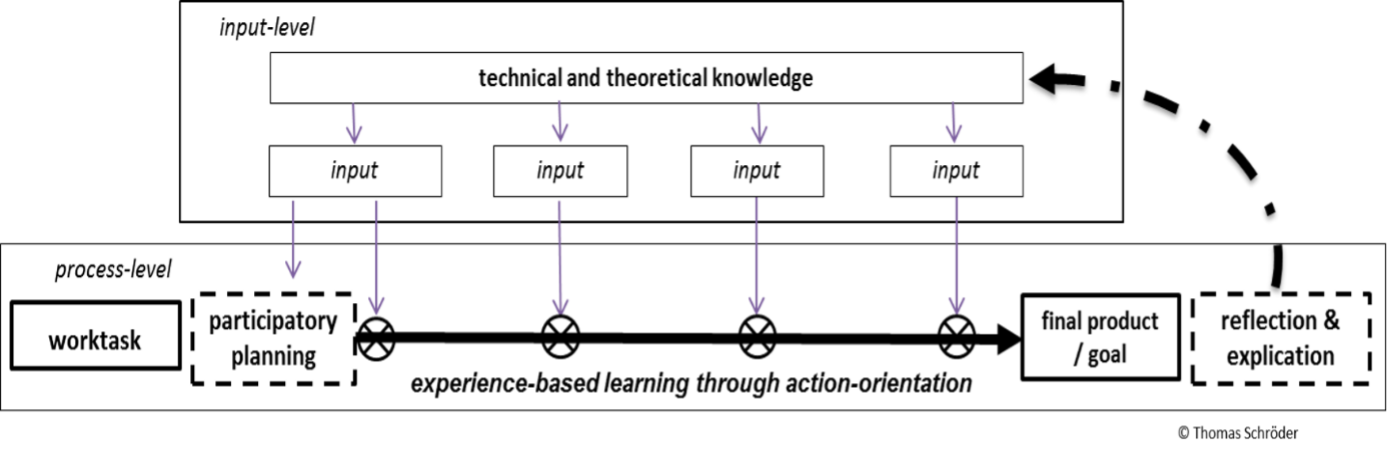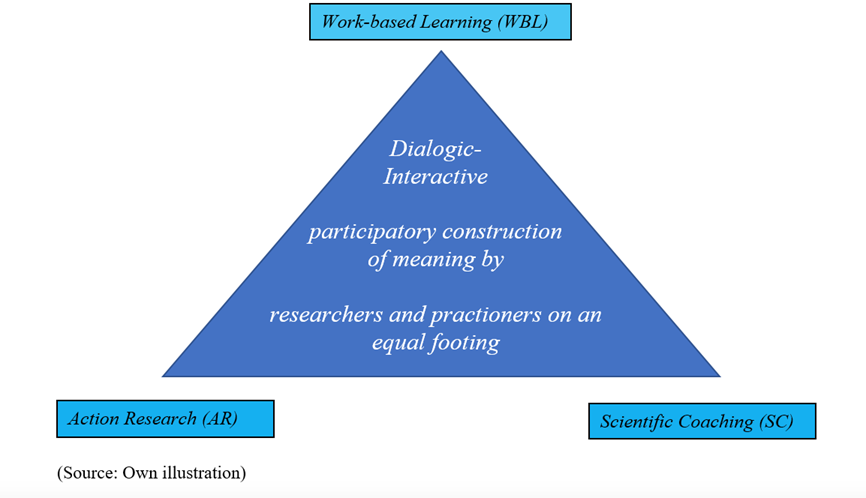4. Research Questions
The overarching question of all research and reform activities of ProWoThai is:
“How can WBL be implemented and developed in a needs-based and culturally and contextually coherent way?”
This question can be operationalized in the following (implicit) sub-colours:
- How to develop WBL according to the practical needs of partners?
- How and where can WBL be implemented on a needs-based level, using existing expertise?
- How can the sustainability of actions and reforms be secured beyond the lifetime of the project?
These (implicit) research questions represent the bottom line of the entire Action Research project, geared towards concrete measures of change on micro, meso, and macro levels. The research activities took place in the context of the exploratory study as well as during the development and implementation phase.
- Exploratory Study: finding and analyzing compatible structures of dual training, within the framework of which WBL could be further developed: The Tripartite TVET system (TPTS) and the School in Factory (SiF).
- Development and implementation phase:
(1) Research related to the Thai vocational education system and the analysis of documents on the vocational strategy of the Thai government.
(2) Research on the scientific and practical concepts at stake.
5. ProWoThai in the Context of International TVET Research and Cooperation
The ProWoThai project is located in the scientific discipline of TVET research, which represents an interdisciplinary field of research that addresses a variety of issues and development tasks at macro, meso, and micro levels (cf. Rauner/ Grollmann 2018, p. 13):
- The macro level deals with questions of the vocational education and training system and its further development.
- The meso level relates to the organization and design of vocational training curricula/institutions.
- The micro level comprises methodical-didactical and content-related questions of educational and learning processes.
In essence, the task of TVET research incorporates the “scientific study of the fundamentals for the design and organization of vocational education and training” and “development tasks such as the creation of training regulations and media” (ibid., p. 15). TVET research thus differs from general education research primarily in its specific content and goals. These include, above all, the change of work organized in occupational form as well as the analysis and design of vocational education, qualification and learning processes (cf. ibid., p. 15).


